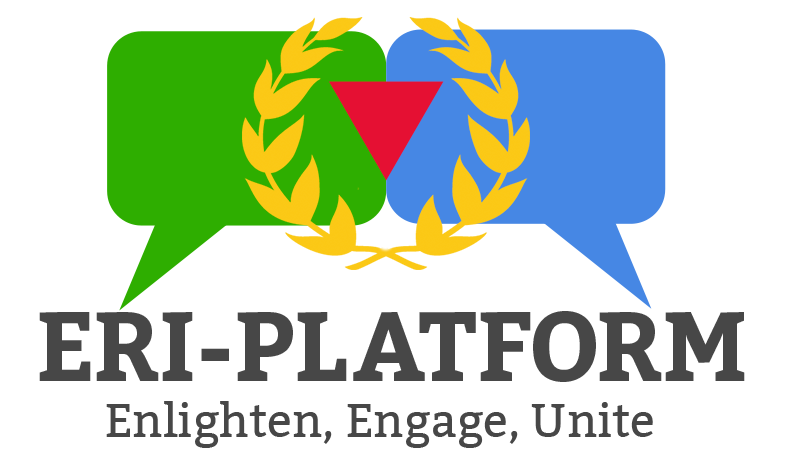The nine-year old UN sanctions provided for (1) an arms embargo on Eritrea and (2) a travel ban and (3) an asset freeze on targeted individuals. The list of individuals (link) targeted for travel ban and asset freeze contained and, therefore, affected no Eritrean government official or citizen. Beyond the arms embargo, the sanctions had no economic effect on Eritrea or the regime.
Yet, the sanctions have served a useful internal purpose to externalise Eritrea’s economic malaise. The regime has blamed sanctions for the consequences of its own political failures and economic mismanagement. The state of total political paralysis, economic ruin and disruption of the very fabric of Eritrean society today is the outcome not of sanctions but of the deliberate policies and practices of the authoritarian regime. Clearly, the dismal situation in Eritrea, the extreme poverty and abject misery afflicting the Eritrean people are the regime’s own doing, the results of its wrong policies and malevolent practices. No amount of propaganda can hide this ugly truth.
As a matter of principle and in the national interest, Eri-Platform has maintained that the sanctions were singular, unjustified, and unwarranted (see ‘The Case for Lifting Sanctions on Eritrea’). While fully aware that the UN sanctions were prompted by the regime itself, we have consistently been opposed to their imposition and continuation. They were spurred by the regime and wrongly imposed for the wrong reasons!
Arbitrary arrests, indefinite detention, forced disappearances and cruel torture have become commonplace in Eritrea. Repeated pleas by concerned international partners to follow due process, to adhere to the rule of law, and to respect basic human rights fell on deaf ears. The authoritarian regime’s repressive policies and practices, unfolding in a state of complete absence of the rule of law; systematic, gross and widespread violations of human rights; and brutal suppression of dissent have thus already resulted in the total political, economic and diplomatic isolation of the country at the regional and international levels.
At the same time, despite repeated warnings from international partners, including senior EU and US officials, to stop alleged support to a ‘terrorist’ movement in Somalia (Harakat al-Shabaab al-Mujahideen), the regime rebuffed all attempts to engage on the matter and failed to provide a persuasive or convincing denial of the allegations. Furthermore, it refused to acknowledge the border standoff that resulted in armed clashes with Djibouti, persisted in denial of the existence of any problem at all with its neighbour, and rejected all regional initiatives and international attempts at a peaceful resolution of the dispute, only to swallow its lies and reverse course later on when it admitted the truth of the matter and accepted Qatari mediation after the imposition of the sanctions.
Taking advantage of Eritrea’s self-isolation and bent on diverting international scrutiny from its obstruction of the work of the Eritrea-Ethiopia Boundary Commission to demarcate the boundary, as well as its continued occupation of sovereign Eritrean territory, in contravention of its treaty obligations under the Algiers Agreements, the previous government of Ethiopia, with the tacit support of the US, spearheaded the sanctions resolution. The unanimous adoption of the resolution to impose the sanctions by the Intergovernmental Authority on Development (IGAD), the African Union (AU), and the UN Security Council, respectively, attested to the success of the regime’s total isolation of the State of Eritrea at the sub-regional, regional and international levels. Furthermore, the regime’s persistent refusal to engage with and allow the Somalia-Eritrea Monitoring Group and the Chairman of the UN Security Council’s Sanctions Committee (Mr. Kairat Usmanov of Kazakhstan) to visit Eritrea obstructed several attempts by certain UN Security Council Members to get the sanctions lifted and served to prolong the sanctions regime.
Now, the recent rapprochement with Ethiopia (as well as with Somalia and, to some extent, with Djibouti) and the subsequent engagement with Mr. Usmanov have cleared the way for the lifting of the sanctions. The Joint Declaration of Peace and Friendship with Ethiopia and the lifting of the UN sanctions have removed the two pretexts that the Eritrean regime has used to impose a brutal dictatorship and hold the Eritrean people hostage under an undeclared state of emergency in the name of national security and to blame the sanctions for the virtual collapse of the Eritrean economy and the miserable human condition in Eritrea.
Undoubtedly, this development destigmatises the State of Eritrea, vindicates Eritrean activists who have consistently opposed and called for the lifting of the sanctions, and deals a slap in the face to the isolationist regime. It is quite fitting therefore that the Eritrean people at home and abroad welcome this important occasion. True to form, however, the authoritarian regime (and its sycophants) would try to hide its perfidious role in spurring the imposition of the sanctions and orchestrate their lifting as a victory for the regime in an effort to buy time for its dictatorship.
With the lifting of the UN sanctions, peace with
Ethiopia must be secured with the definitive resolution of the boundary issue
and the institutionalisation of state-to-state relations. Furthermore, viable
peace with a stable Ethiopia would require peace within Eritrea itself. The
domestic situation in Eritrea is crying for change: the institution of the rule
of law; the application of the 1997 ratified Constitution; the management of national
service in accordance with the terms and conditions of the 1995 Proclamation;
the immediate release of all political detainees, jailed journalists, prisoners
of conscience and imprisoned citizens; an end to arbitrary arrests, indefinite
detention and torture; and the establishment of a new democratic dispensation,
and opening up the political and economic space in the service and to the
benefit of the Eritrean people.

